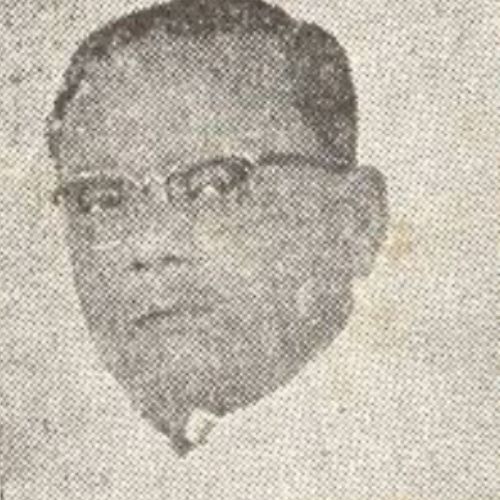Early Life
Mono Mohan Das was born in March 1910, in a village called Nawpara in Kolkata, West Bengal. He completed his education at the Central Collegiate School, City College and Calcutta Medical College, Calcutta (now Kolkata) and had an M.B.B.S degree. He was a medical practitioner and a house physician for Calcutta Medical College. He worked as a sanitary officer in the Kolkata Corporation. He became a member of the Indian National Congress in 1936.
Role in India’s Independence Movement
Das participated in the freedom struggle and he joined the All India Forward Bloc (AIFB) which was a left-wing nationalist political party led by Subash Chandra Bose.
Contribution to Constitution Making
Das was elected to the Constituent Assembly from West Bengal through the Congress Party.
He moved an amendment regarding the addition of a new provision at the end of the article 282. His interventions were mainly about the minority communities in India. He highlighted the need of the village panchayat system to be included as a part the Constitution of India. Das suggested that the abolition of untouchability must be one of the most important fundamental rights. He also made an intervention about the clause 4 of article 149, with respect to census data collection. Lastly he proposed a condition for an officer to be recruited under the Union Government Of India.
Later Contributions
Das became the member of the Provisional Parliament in 1950 to 1952 and the members of the First Lok Sabha from 1952 to 1957; Second Lok Sabha from 1957 to 1962. He was the Parliamentary Secretary to the Minister of Education from December 1953 to April 1956. He also was the Deputy Minister of Education from May 1956 to April 1957; the Deputy Minister of Education and Scientific Research from May 1957 to March 1958 and the Deputy Minister of Scientific Research & Cultural Affairs since April 1958. He joined Congress Party and was elected to the Third Lok Sabha in 1962 from the newly created Ausgram (Lok Sabha constituency).
He took part in social activities such as upliftment of the Scheduled Castes and poor sections of the society. He also was the President of All Bengal Rabidas Association.
Mono Mohan Das passed away on 13th December 1992 at the age of 82 years.
- He proposed to the Constituent Assembly members that in order for an officer to be recruited under the Union Government, the candidate must possess a fairly workable knowledge in three languages at least, namely, English, the official language of the Union and a regional language of India different from the official language of the country.
- He highlighted the need for recognition of minority communities and talked about how to define them.
- He suggested the need for the village panchayat system to be mentioned in the Constitution of India.
- He suggested that the abolition of untouchability should be one of the most important fundamental rights.
- He also made an intervention about the clause 4 of article 149 and suggested that the records of the 1941 census should be taken as the guidance for the new elections.

